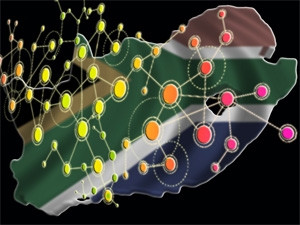
Months after telecoms minister said the selection of a service provider for the first phase of government's ambitious broadband infrastructure project, SA Connect, was on track, the department has yet to appoint a lead agent for the project.
Speaking at last September's Southern Africa Telecommunication Networks and Applications Conference (SATNAC), minister Siyabonga Cwele said the appointment of a lead implementation agent for SA Connect would happen within days.
However, Department of Telecommunications and Postal Services (DTPS) spokesperson Siya Qoza, says the department is following due process to facilitate the rollout of broadband for phase one of the broadband project.
"The announcement of the service provider will only be done once the department has finalised the process and the subsequent conclusion of the necessary agreements," says Qoza.
Lost in translation
SA Connect, first announced in 2013, is the country's broadband plan and aims to deliver 100% broadband connectivity for all schools, health and government facilities by 2020.
The project will also deliver widespread broadband access to 90% of the country's population by 2020; and 100% by 2030. Phase one of the project has set out to connect 1 296 government facilities in the eight rural district municipalities to fast, secure and always-available Internet, which is scalable for future demand over three years, until 2017.
During his State of the Nation Address last year, president Jacob Zuma announced that government had decided to designate Telkom as the lead agency for SA Connect.
However, the DTPS has pointed out that Telkom is only a 'designated' and not 'appointed' lead agent for the broadband project.
According to Cwele, Telkom's designation as the lead agency is based on the investment it has made in rolling out an extensive fibre network, which accounts for 86% of the existing 170 000kms of national fibre.
Democratic Alliance shadow minister for Telecommunications and Postal Services, Marian Shinn, says there has been much confusion around the word 'designate' and 'appoint'.
"The term 'designate, allocate or whatever that the minister or president have used during the past year is merely shape-shifting in response to the outcry that government has unilaterally decided to give Telkom the lead on SA Connect without going through legal procurement processes," says Shinn.
Tender it
Shinn says, the Public Finance Management Act states that all government departments or state owned companies must conduct fair and transparent processes in their procurement of products and services.
"No such process has been conducted in relation to SA Connect. There have been no invitations to tender or requests for proposals or any discussions with network companies other than Telkom," she notes.
Shinn adds: "This means that any deal signed with Telkom now may well be challenged in the courts by network companies. This could mean further delays because the government has favoured Telkom because it regards it as a state owned company, which it is not. It is JSE listed and has obligations to operate profitably in the best interests of its shareholders - of which government is only one (albeit the largest one)".
More players
Zami Nkosi, CEO of the Universal Services and Access Agency of SA (USAASA), says Telkom has vast infrastructure in the country - it is infrastructure that can't be simply ignored.
The Telkom infrastructure will assist in the speedy delivery of broadband in SA, says Nkosi.
However, other players like Broadband Infraco also have a role in the rollout of broadband and they remain a critical partner. USAASA also has a role to play and so does Telkom, he says.
"What the president said is that Telkom is going to take a lead in the implementation simply because of the vast infrastructure that it already has. That does not mean other entities of the department [DTPS] will not be playing a particular role. The point of presence - the network that Broadband Infraco has in its asset register - is still going to be needed.
"The last mile connectivity that we will be doing as USAASA is still going to happen; the infrastructure that Telkom has is also important," Nkosi explains.
More money
According to Business Day, the DTPS will be seeking alternative funding for the national broadband project, which is expected to cost up to R67 billion.
Funding would be raised through, among others, loan guarantees, state-owned financial institutions such as the Industrial Development Corporation, and the private sector, according to Business Day.
Last year, government allocated R740 million for phase one of the broadband project, which aims to connect all schools, health facilities, government offices, Thusong Centres and post offices to broadband service in eight rural district municipalities.
Cwele has previously noted that the funds allocated to the DTPS for the SA Connect initiative will not be enough to deliver on broadband services.
Share